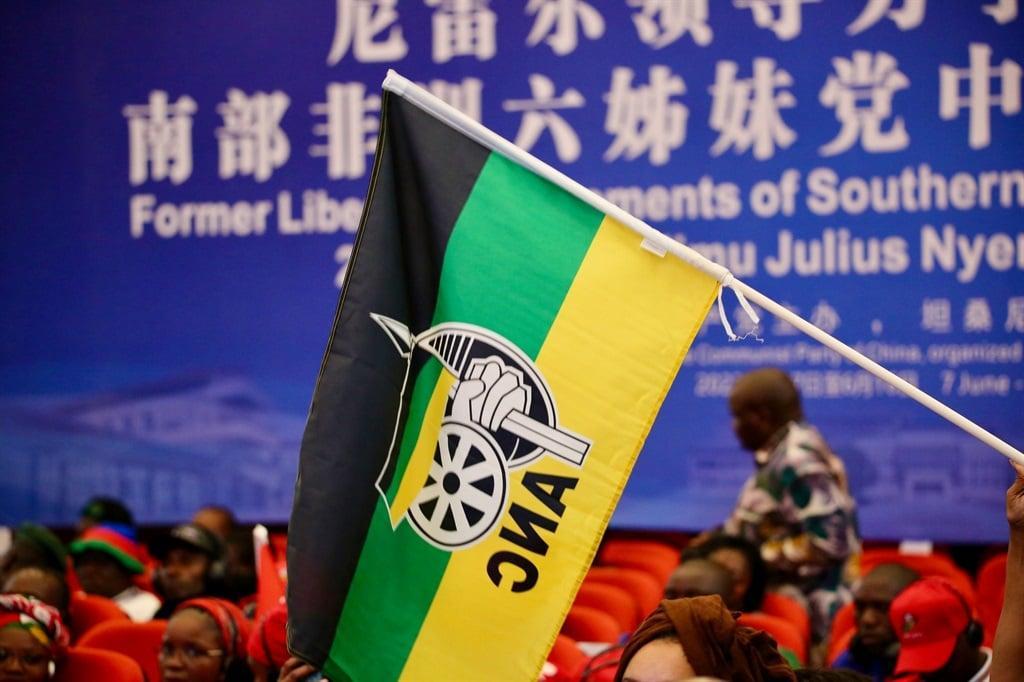Africa-Press – South-Africa. Shooting down the DA’s so-called “End cadre deployment bill”, the ANC argued the bill was “undesirable” because the executive has similar legislation in the works.
However, this is not entirely the case: A bill currently before Parliament does not contain the measure in the DA’s bill that would have isolated the Public Service Commission from political interference, albeit that it does have provisions to “ensure that there is a clear delineation between the political and administrative roles”.
Last Tuesday, the National Assembly voted on the Portfolio Committee on Public Service and Administration’s report on the Public Administration Laws General Amendment Bill (PALGAB), a private member’s bill introduced by DA MP Leon Schreiber in 2021, which he held up as the “cure for cadre deployment”.
Only the ANC and PAC’s sole MP voted against the PALGAB.
The chairperson of the Portfolio Committee on Public and Administration, ANC MP Teliswa Mgweba, said in the debate preceding the vote: “Honourable members, all legislative and policy reforms in the public service are consistent with and complement the Public Administration Laws General Amendment Bill.
“Based on the existing legislative amendments in the public service, the committee resolved to recommend to this august House that the Public Administration Laws General Amendment Bill is undesirable as it complements the existing bills drafted by the Department of Public Service and Administration.”
However, the Public Service Amendment Bill, introduced by the executive, does not contain the provisions that Schreiber proposed to curb cadre deployment.
A key element of the PALGAB is prohibiting employees of the Public Service Commission (PSC) from having any political office.
In the PALGAB, “regional office” is defined as follows: “[a] the position of chairperson, deputy chairperson, secretary, deputy secretary or treasurer of the party organisation nationally or in any province, region or other area in which the party operates; [b] any position in the party or organisation equivalent to a position referred to in paragraph [a], irrespective of the title designated to the position; or [c] any position of authority in that party, organisation or structure”.
The bill states an employee of the PSC “may not hold political office in a political party or political organisation, whether in a permanent, temporary or acting capacity”.
The now scuppered bill would have required the PSC to give directions to every sector, administration and institution in the public service for every decision related to recruitment, transfers or promotions to be in line with the Constitution.
It must be based on ability, demonstrated by proficiency, including training or other qualification, and skill that is required for the relevant area.
It must also be based on objectivity and fairness, so that any recruitment, transfer or promotion is done on merit alone, does not favour or prejudice any person because that person supports, or does not support, a particular political party or cause.
The directions must “ensure that employment and personnel management practices are based on objectivity and fairness, including a prohibition on any recruitment, transfer, promotion or dismissal being effected based on, in part or in whole, a particular person’s support of, or opposition to, a particular political party or cause”.
Furthermore, anyone not compliant with these directives would be “guilty of an offence and liable on conviction to a fine or to imprisonment for a period not exceeding 12 months or to both a fine and such imprisonment”.
Neither the Public Service Amendment Bill, nor the Public Administration Management Amendment Bill, has any such provisions.
The Public Service Amendment Bill does, however, have some provisions dealing with cadre deployment.
The bill has a clause that would “prohibit a head of department and an employee directly reporting to the head of department from holding political office”.
This bill defines “political office” as “[a] the position of chairperson, deputy chairperson, secretary, deputy secretary or treasurer of the party nationally or in a province, region or other area in which the party operates; or [b] any position in the party equivalent to a position referred to in paragraph [a], irrespective of the title designated to the position”.
This means, for instance, ANC secretary-general Fikile Mbalula would be prevented from being a director general or a deputy director general in a government department.
“Other political rights of heads of department and employees directly reporting to the head of department are unaffected by the amendment and they remain entitled to enjoy and exercise these rights freely,” read the bill’s memorandum.
“The provision is limited to heads of department and employees directly reporting to heads and employees of department as these heads are responsible for administrative decisions.”
Thus, the bill would not prevent political appointments, or persons with political affiliations, being appointed in levels lower than a head of a department or a position reporting to the head of department.
This bill is still going through the parliamentary process and could still be amended.
The Portfolio Committee and Public Service and Administration’s report on the PALGAB read the Department of Public Service and Administration was working on and the department was “currently working on a plethora of policies to enforce the merit-based appointments free from political interference … this includes the draft Framework on the Professionalisation of the Public Service and legislative reviews to be tabled in Parliament in due course”.
ALSO READ | Finance minister slams cadre deployment as ‘weapon’ in untrained hands
Parliament is not accepting any new legislation ahead of next year’s elections, and “any legislative reviews to be tabled in Parliament in due course” will only be handled by the next administration.
The Zondo Commission found cadre deployment was unconstitutional and unlawful.
The government’s response has at times been at odds with the governing ANC, who has at times contradicted itself.
In October last year, Cabinet adopted the national framework towards the implementation of professionalisation of the public sector, which recommended “cadre deployment practices must be reconsidered for merit-based recruitment and selection in the public sector”.
For More News And Analysis About South-Africa Follow Africa-Press






